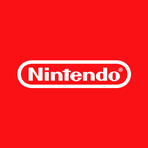Nintendo's Legal Victory: Yuzu Emulator Pays $2.4 Million to Nintendo
March 10, 2024, 8:10 pm
Yuzu, the infamous Nintendo Switch emulator, has finally met its match in a legal battle with Nintendo. The company behind Yuzu, Tropic Haze, has agreed to pay a hefty $2.4 million in damages to Nintendo and cease all activities related to the emulator. This marks a significant win for Nintendo in the fight against piracy and sets a precedent for other emulators that may follow a similar path.
Yuzu, known for allowing users to play Switch games on PC and mobile devices, was accused of facilitating piracy on a massive scale by Nintendo. The emulator was found to decrypt Nintendo Switch games using unauthorized copies of cryptographic keys, a clear violation of copyright laws.
In a swift resolution, Tropic Haze has agreed to not only pay damages but also destroy all materials related to the emulator, including the domain name and any circumvention tools used in its development. This legal victory for Nintendo underscores the company's commitment to protecting its intellectual property rights and sending a strong message to others in the emulation community.
The lawsuit against Yuzu sheds light on the complex legal landscape surrounding emulators and their legality. While some argue in favor of preserving outdated platforms through emulation, the use of copyrighted BIOSes and encryption layers raises questions about the boundaries of emulation.
Nintendo's successful legal action against Yuzu serves as a warning to other emulator developers and highlights the risks involved in circumventing copyright protections. The proposed permanent injunction against Tropic Haze sets a strict precedent for any future emulators that may attempt to replicate Yuzu's actions.
As the legal battle comes to a close, Nintendo emerges victorious, securing a significant financial settlement and ensuring the end of Yuzu's reign as a popular Switch emulator. This outcome reinforces the importance of respecting intellectual property rights in the gaming industry and sends a clear message to those who seek to profit from unauthorized emulation.
Yuzu, known for allowing users to play Switch games on PC and mobile devices, was accused of facilitating piracy on a massive scale by Nintendo. The emulator was found to decrypt Nintendo Switch games using unauthorized copies of cryptographic keys, a clear violation of copyright laws.
In a swift resolution, Tropic Haze has agreed to not only pay damages but also destroy all materials related to the emulator, including the domain name and any circumvention tools used in its development. This legal victory for Nintendo underscores the company's commitment to protecting its intellectual property rights and sending a strong message to others in the emulation community.
The lawsuit against Yuzu sheds light on the complex legal landscape surrounding emulators and their legality. While some argue in favor of preserving outdated platforms through emulation, the use of copyrighted BIOSes and encryption layers raises questions about the boundaries of emulation.
Nintendo's successful legal action against Yuzu serves as a warning to other emulator developers and highlights the risks involved in circumventing copyright protections. The proposed permanent injunction against Tropic Haze sets a strict precedent for any future emulators that may attempt to replicate Yuzu's actions.
As the legal battle comes to a close, Nintendo emerges victorious, securing a significant financial settlement and ensuring the end of Yuzu's reign as a popular Switch emulator. This outcome reinforces the importance of respecting intellectual property rights in the gaming industry and sends a clear message to those who seek to profit from unauthorized emulation.
